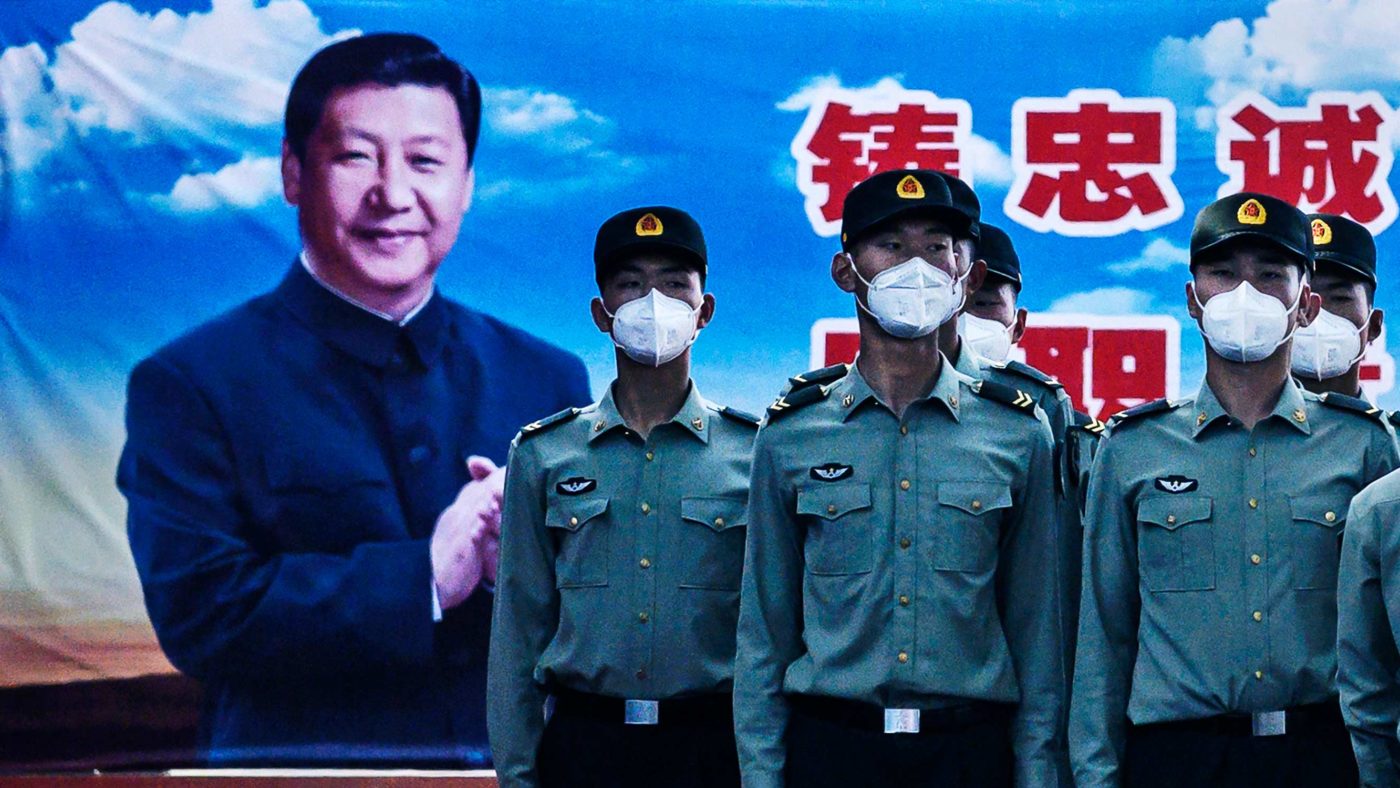In the last year, much of the free world has experienced a downward shift in relations with China; at the same time, the tone and substance of Beijing’s international messaging has drastically changed.
Besuited and coiffed Chinese diplomats have abandoned platitudes about ‘the shared destiny of mankind’ and ‘win-win solutions’ to global economic challenges. Donning the masks of so-called ‘Wolf Warriors’, they increasingly follow combative new lines dictated by the Chinese Communist Party (CCP). In parallel, the CCP propaganda machine, at home and abroad, has cranked out ever more aggressive rhetoric attacking liberal democracy and its fundamental values.
If you take China’s word for it, Hong Kong, Xinjiang and Tibet are none of our business, nor is the Chinese ’ownership’ of large tracts of northern India, the South and East China seas and Taiwan. Any state claiming otherwise is ‘hurting the feelings of the Chinese people’ and risks serious punishment from Beijing, including the use of armed force. What does all this mean, and how should the targets of Beijing’s fire and fury respond?
An old Chinese proverb may be helpful here: ‘When you drink water, consider its source’. Since its founding, the CCP has used contrived names and slogans to frame and denigrate forces it feels threatened by and hopes to overthrow. Modern Chinese history is littered with their debris – campaigns such as ‘Smash the Four Olds’ and ‘Knock down the Gang of Four’ sound inoffensive now, but how many lives were lost or broken in their wake?
Though recent domestic slogans have been more moderate, their subtexts are just as grim. In particular, the utopian ‘China Dream’ promoted by Xi Jinping turns out to be a nightmare if you are from Tibet, Xinjiang or Inner Mongolia, or you are a committed Christian, human rights lawyer – or even just a doctor trying to prevent an emerging global health disaster.
And now it seems as though the ‘China Dream’ bodes no good overseas as well. Since the onslaught of Covid-19, the CCP has increasingly shown its true colours. Summed up, its objectives for the post-pandemic world entail an expansion of Chinese power and influence, replacing the US-led open world order with one in which the CCP leads, and clients across the globe play by Beijing’s rules.
As this agenda has moved to the fore, the CCP has tried to pressurise members of the ‘Five Eyes’ intelligence alliance – Britain, the US, Canada, Australia and New Zealand. Of the five, Australia has been hardest hit, although its resilience has been a model of decency, courage and resolve. New Zealand’s increasing acquiescence to the CCP meanwhile has shocked and angered allies.
But the UK too has been exposed to plenty of the CCP’s discursive statecraft. When it attempts to denigrate Britain, the CCP frames it as a former colonial oppressor still trying to run China down. The final Governor of Hong Kong, Lord Patten, for example, is framed as little more than the privateer of a rogue state. Notions of ‘Global Britain’, meanwhile, are just another expression of outworn and undeserved ambition.
When it comes to human rights, the CCP line is that Britain and its allies only raise concerns as an excuse to extract profits from China in traditional selfish capitalist fashion. For its own part, the CCP doesn’t claim Britain and others are a threat to China. On the contrary, the CCP characterises Five Eyes members as incompetent and chaotic, and liberal governments as inferior to China’s strong and secure brand of authoritarianism.
The CCP has an array of tools at its disposal to convey these messages, from so-called ‘wolf-warrior’ diplomats to the state-controlled media outlets of the United Front Work Department such as the Global Times. These organs of the Chinese state are used to amplify the more radical positions within the CCP and promote pro-Chinese British voices in an attempt to legitimise a fringe position.
Policymakers and public figures have much to learn about how China and other revisionist states deploy discursive statecraft, but it isn’t inevitable that the CCP will continue to be successful in manipulating public discourse. The UK and its allies must work hard to insulate themselves from Chinese propaganda by vigorously restating their joint values and principles, and encouraging pro-CCP voices to justify their position, while unabashedly promoting a form of Chinese history and culture free of the warped perspective of the CCP.
There is no quick fix to the problem China poses to free and open states, but Britain and other countries can make themselves more resilient in a way which takes advantage of the values and principles we all hold dear.
Click here to subscribe to our daily briefing – the best pieces from CapX and across the web.
CapX depends on the generosity of its readers. If you value what we do, please consider making a donation.


